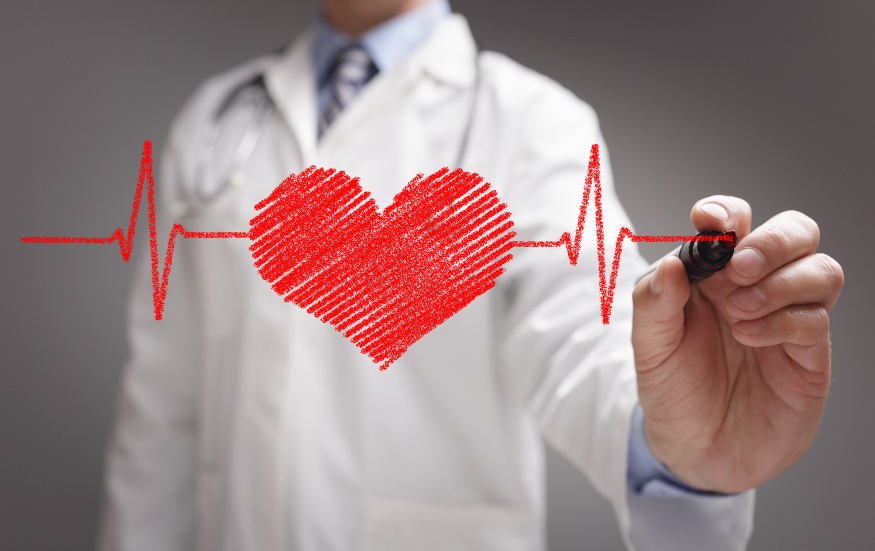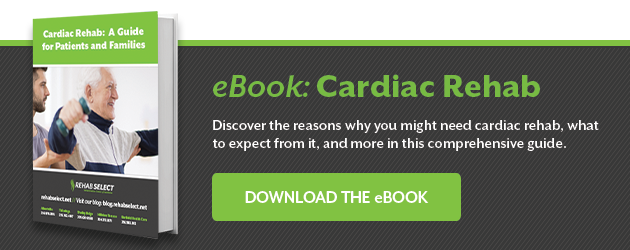
Heart disease is incredibly common. Around 735,000 Americans have a heart attack every year, reports the Center for Disease Control and Prevention. The good news is that, according to the Mayo Clinic, “Many forms of heart disease can be prevented or treated with healthy lifestyle choices.”
The first step, of course, is to recognize that you might be at risk of heart disease. Lack of public awareness means that many people don’t realize they are experiencing early warning signs until they are already severely ill. Indeed, only 27% of those surveyed by the CDC were aware of all the major symptoms of a heart attack. In this article, we’ll explore the common symptoms and causes of heart disease, and then look at what you can about it if you do receive a cardiac diagnosis.
Types of Heart Disease
The term “heart disease” covers a broad range of illnesses that affect the heart. These include congenital conditions (heart defects that you can be born with), heart rhythm problems (also called arrhythmias) and diseases of the blood vessels (also known as coronary artery disease). You may also come across the term “congestive heart failure.” CHF is a condition in which the heart becomes less efficient at pumping blood around the body. It may be caused by clogged arteries, or by diseases that affect the health of the heart itself, such as some infections.
Causes and Symptoms of Heart Disease
Both the cause and the symptoms of heart diseases can vary widely, depending on which condition you are experiencing. The heart is a complex pump system, with four valves controlling the flow of blood through the heart, a network of major veins moving the blood around, and an electrical system that manages the exchange of oxygen-rich and oxygen-poor blood. Many different conditions can affect the proper function of the heart, and some can be life-threatening. In this section, we’ll look at some of the warning signs for some of the most common types of heart disease.
1. Congenital Heart Disease
Congenital heart defects typically develop in the womb. Severe congenital heart conditions are usually apparent soon after birth; babies may have blue-tinged skin, have swollen limbs, and be visibly short of breath. However, less serious congenital heart defects may not be diagnosed until adulthood. Symptoms to watch out for include:
- Swollen hands, feet or limbs
- Shortness of breath during exercise
- Getting tired very easily when you’re exercising
2. Arrhythmia
Heart arrhythmias can be potentially serious, but are unlikely to be fatal in a person with a normal, healthy heart. Arrhythmia means that your heart rhythm is abnormal in some way - it might be too fast, too slow, or irregular.
Signs to keep an eye out for may include:
- A fluttering feeling in your chest
- Breathlessness
- Chest pain or discomfort
- A racing or very slow heartbeat
- Feelings of lightheadedness, dizziness, or fainting
The most common causes of arrhythmia are:
- High blood pressure
- Diabetes
- Lifestyle issues like smoking, excessive use of alcohol or caffeine, or illegal drug use
- Stress and anxiety
- Some over-the-counter medications
In some cases, an abnormal heartbeat might be a sign of another heart condition, such as a congenital heart defect, coronary artery disease or valvular heart disease.
3. Heart Infection
Heart infections are caused by an irritant reaching the heart muscle. This might be a bacterial infection, a virus, or a parasite. Symptoms of a heart infection include:
- A fever
- Breathlessness
- Severe fatigue
- Swollen legs and/or abdomen
- Arrhythmia
- Dry and/or persistent cough
- Skin rashes
4. Valvular Heart Disease
Blood flow through the heart is controlled by four different valves. These valves can be damaged by heart disease - they may become too narrow to allow blood to pass through, close completely, or become “leaky”. Any of these conditions will interfere with the efficient pumping of blood through the body, and can produce a number of symptoms, including:
Depending on which valve isn't working properly, valvular heart disease symptoms generally include:
- Fatigue
- Shortness of breath
- Irregular heartbeat
- Swollen feet or ankles
- Chest pain
- Fainting
5. Cardiovascular Disease
This group of heart diseases is caused by problems with the arteries and blood vessels that deliver blood to and from the heart. Most commonly, the term is used to describe a condition where fatty plaques have built up in the arteries, limiting blood flow.
Symptoms may include:
- Breathlessness
- Pain, weakness, or coldness in limbs
- Chest pain, discomfort or pressure
- Pain in the neck, jaw, throat, upper abdomen and/or back
The Mayo Clinic also notes that men and women may experience symptoms of cardiovascular disease differently: “Men are more likely to have chest pain; women are more likely to have other symptoms along with chest discomfort, such as shortness of breath, nausea, and extreme fatigue.”
As can be seen from the array of symptoms listed above, there are many possible signs of heart disease, depending on the cause and on the individual. However, there are some symptoms that you should always get checked out by a medical professional, cautions Charles Chambers, MD, director of the Cardiac Catheterization Laboratory at Penn State Hershey Heart and Vascular Institute:
- Severe chest discomfort or pain, especially if it lasts for more than a few minutes
- Nausea and stomach pain (especially if you are at risk for heart disease)
- Pain that radiates down the left arm; sudden dizziness (particularly if coupled with chest discomfort and/or breathlessness)
- Pain that spreads from your chest to your throat or jaw
- Sudden extreme exhaustion and fatigue
- Unusually loud snoring
- A sudden cold sweat
- A persistent cough (especially when coupled with pink or white mucus)
- Swollen legs, feet, or ankles
- An irregular heartbeat.
While most of these symptoms have multiple alternative explanations, if you are at risk of heart disease, they are all worth discussing with a medical professional. According to the American Heart Association, groups that are especially prone to heart disease include people over 60, people who have high blood pressure or diabetes, and people who are medically overweight.
"The more risk factors you have," cautions Vincent Bufalino, MD, an AHA spokesman, "the more you should be concerned about anything that might be heart-related."
Next Steps: What To Do If You Have Heart Disease
So, if you recognize the symptoms of heart disease and receive a diagnosis from your doctor, what happens next?
In most cases, alongside appropriate medications and medical treatments, your medical provider is likely to recommend steps you can take to stop things from getting worse. Health experts agree that lifestyle changes can often be helpful as a way to mitigate the effects of heart disease.
Depending on your condition and diagnosis, these might include:
- Regular exercise
Exercise can help strengthen your heart and help relieve stress - both of which may be helpful for those with symptoms of heart disease.
- Improved diet
Diet has a recognized impact on heart health. The Mayo Clinic recommends a heart-healthy diet that is low in salt and saturated fat. This may also help reduce excess weight, reducing the strain being placed on your heart.
- Regular check-ups
Heart conditions are potentially serious, and regular medical revisions are therefore usually recommended for heart patients.
Depending on the stage of your heart disease, your doctor may also recommend cardiac rehabilitation.
Benefits of Cardiac Rehab
According to the American College of Cardiology, cardiac rehabilitation is “a supervised exercise program that also provides education about nutrition, medication use and general lifestyle choices to help patients strengthen their hearts and lead healthier lives.“ A team of heart disease specialists will put together a customized program to help limit the effects of your cardiac condition and help you manage or reduce your symptoms. Benefits of cardiac rehab may include:
- Reduced chest pains and discomfort
- Better nutrition and, if medically necessary, weight loss
- Improved physical fitness and a higher quality of life
- A greater understanding of your heart condition, reduced stress and improved emotional well-being
As the American Heart Association puts it:
“Cardiac rehabilitation doesn’t change your past, but it can help you improve your heart’s future.”
To find out more about cardiac care at Rehab Select, please click here or contact us for more information.





